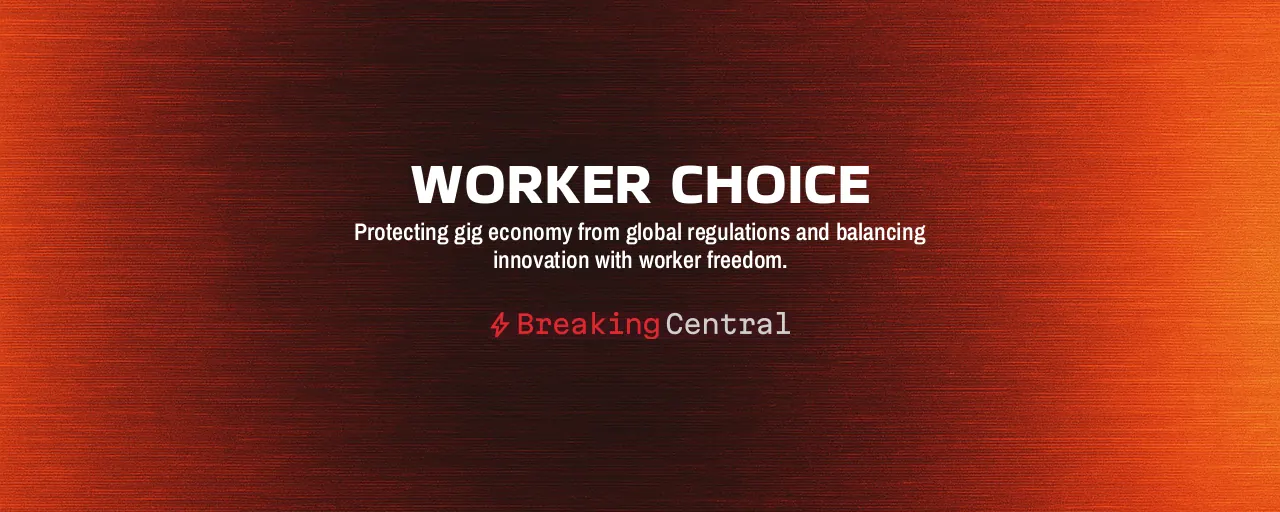A Beacon of Economic Freedom
The gig economy stands as a testament to American innovation. Platforms like Uber, Fiverr, and Upwork have redefined work, granting millions the ability to set their own schedules and pursue entrepreneurial dreams. In 2024, this sector generated over $450 billion globally, with 16 percent of U.S. workers engaged. From delivery drivers to freelance coders, people across the nation rely on the flexibility of independent contracting to build lives on their terms.
This system thrives because it empowers individuals. Workers choose when, where, and how they earn, free from the constraints of a traditional job. At the 113th International Labour Conference in Geneva, running through June 13, 2025, Deputy Secretary of Labor Keith Sonderling is championing this vision. His goal is to shield the gig economy from international regulations that could strangle its potential.
Sonderling's presence signals a firm commitment to American workers and businesses. The International Labour Organization (ILO) is debating global standards that could impose rigid rules on platform workers, such as mandatory wages and social security contributions. These proposals, backed by trade unions and advocacy groups, claim to protect workers, yet they risk undermining the very opportunities that make gig work transformative.
The U.S. leads the world in gig economy innovation, and Sonderling's leadership in Geneva defends a system that prioritizes personal choice over bureaucratic oversight. Why would we let foreign regulators dismantle a model that's working for millions? The answer lies in protecting the freedom that fuels prosperity.
Some argue these global rules are essential to ensure fair treatment, pointing to the lack of benefits like health insurance for gig workers. This view, often advanced by supporters of employee classification, overlooks a critical truth. Many workers choose gig work precisely because it offers autonomy, and forcing them into traditional employment could strip away that freedom while raising costs that harm businesses and consumers alike.
The Danger of International Control
The ILO's push for a binding convention threatens the gig economy's vitality. Thirty-three trade unions and organizations are advocating for uniform labor standards, including collective bargaining and employee-style protections. Europe is already moving in this direction, with Belgium and Italy exploring presumption tests and Spain's Law 12/2021 reclassifying delivery drivers. India's 2020 Social Security Code further signals a global shift toward standardized rules. These efforts prioritize regulation, which may impede innovation.
The stakes are high. Industry forecasts predict the gig economy will surpass $500 billion by 2026, with Asia-Pacific markets like India and Indonesia adding 30 million contract workers. Maintaining its edge in this growing sector is crucial for the U.S. Sonderling's roundtable on artificial intelligence at the conference highlights America's role as a leader in tech-driven work, where AI enhances platforms' ability to connect workers with opportunities. Why allow international rules to slow this progress?
Supporters of global standards claim they promote fairness by guaranteeing benefits and wages. Their approach assumes gig workers want to be employees, failing to acknowledge the many who value independence over traditional job structures. Reclassifying workers risks pricing them out of the market and stifling platforms' growth. The Department of Labor's decision to revert to guidelines like Fact Sheet #13, after rescinding the 2024 'economic reality' rule, reflects a commitment to preserving worker choice.
Through bilateral meetings, including with ILO Director-General Gilbert F. Houngbo, Sonderling is working to protect American interests. These discussions focus on ensuring U.S. businesses aren't disadvantaged by unfair labor practices abroad. This approach respects national sovereignty, allowing the U.S. to shape its labor policies while engaging globally. Why cede control to an international body disconnected from our economic realities?
Rooted in American Values
The gig economy reflects America's entrepreneurial heritage, built on principles of deregulation championed since the 1980s and revitalized after the 2008 financial crisis. Platforms like Airbnb and Uber, launched in the mid-2000s, have reshaped global markets, contributing up to 5 percent of GDP in some emerging economies. Leaders have supported this model through policies like California's Proposition 22, which preserved contractor status, and Texas's portable benefits proposals, even as advocates for measures like California's AB 5 have pushed back.
Those advocating for employee protections often cite historical labor reforms, arguing gig workers need the same safeguards as past generations. However, the digital era requires fresh solutions. Gig work offers a voluntary path to economic independence, a new approach that moves beyond outdated employment models. Initiatives like Project 2025 propose portable benefits and limited federal oversight, striking a balance that supports workers without stifling innovation.
Concerns about algorithmic management and job displacement are real, yet they do not justify heavy-handed regulations. Advances in AI and remote platforms have expanded opportunities, and targeted measures like reskilling programs and privacy protections can address challenges without undermining the gig economy's flexibility. History shows that innovation thrives when freedom takes precedence.
Securing a Free Future
Sonderling's stance in Geneva sends a powerful message: America will defend the gig economy's promise. This sector, though not flawless, offers unmatched opportunities for workers and businesses. International regulations risk replacing that potential with layers of bureaucracy, harming the people they aim to protect.
The U.S. has a responsibility to lead. By promoting policies that value choice and innovation, we can ensure the gig economy remains a driver of prosperity. Sonderling's advocacy reflects a commitment to workers who want control over their futures, rather than mandates from distant regulators.
Let's champion the freedom that defines the gig economy. America's leadership depends on keeping this engine of opportunity unbound, ensuring workers and businesses thrive in a world that values their potential.
